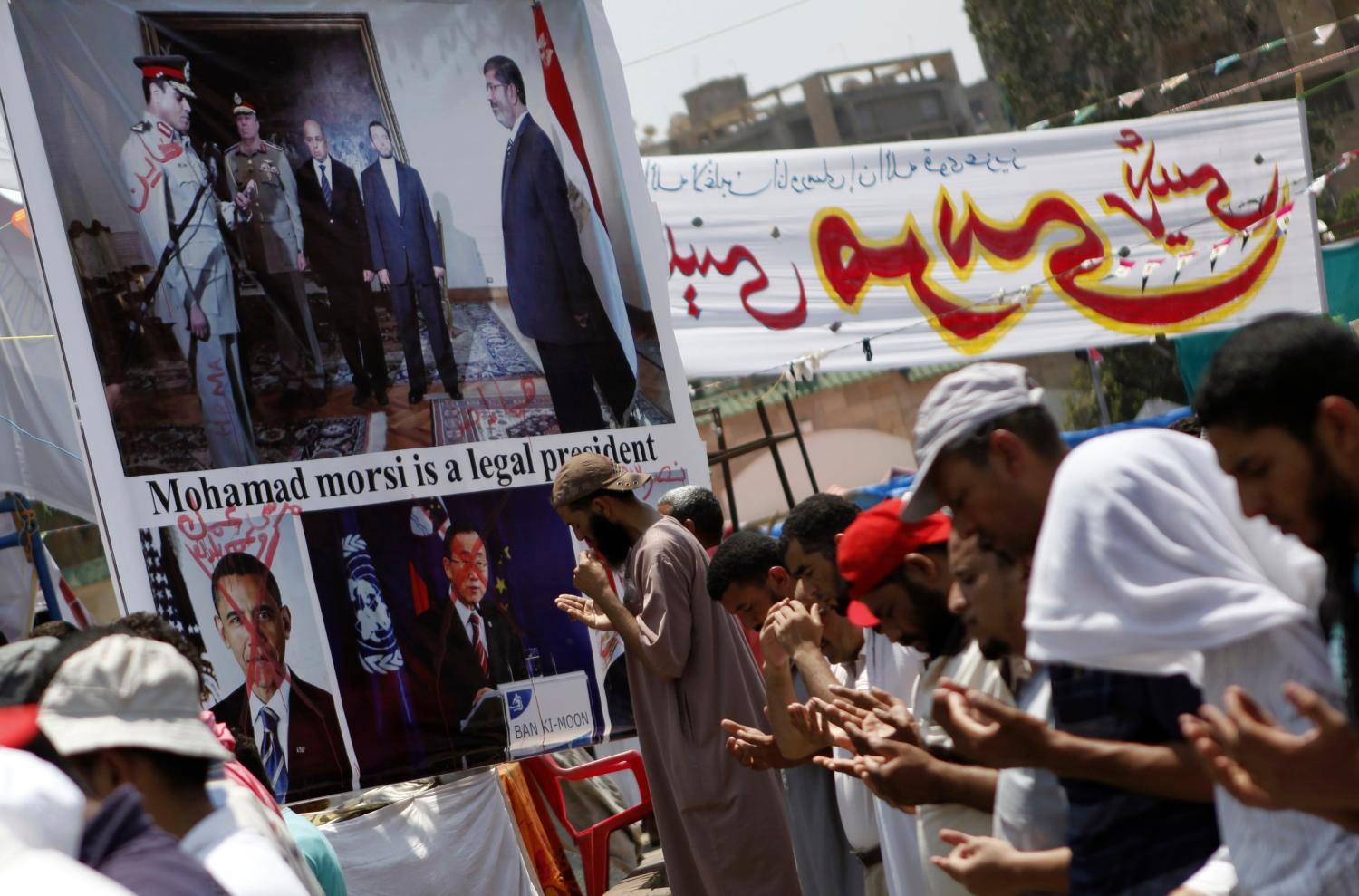Content from the Brookings Doha Center is now archived. In September 2021, after 14 years of impactful partnership, Brookings and the Brookings Doha Center announced that they were ending their affiliation. The Brookings Doha Center is now the Middle East Council on Global Affairs, a separate public policy institution based in Qatar.
With the Egypt’s transition effectively on ice after the military coup and anti-Americanism at new heights, hopes of the United States playing a positive role in nurturing Egyptian democracy have all but died. Citing the limits of its influence and a lack of resources, Washington has, since the start of the Arab Spring, fallen back on an approach that resembles the “authoritarian bargains” of the past.
In this Brookings Doha Center paper, Shadi Hamid and Peter Mandaville call for a comprehensive re-think of U.S. policy toward Egypt. The paper argues that the coup and subsequent crackdown present a critical opportunity to review the rationale of the bilateral relationship. There is a need to question the long-held belief that U.S. military assistance is a price that needs to be paid to ensure Cairo’s compliance with the Camp David Accords. Moving beyond the mythology of Camp David is a necessary first step in reimagining the U.S.-Egypt relationship and anchoring it on more solid ground for the longer term.
The authors argue that the United States has significantly more leverage with Egypt than is commonly assumed and that it should deploy that leverage to temper the Egyptian army’s excesses and push for an inclusive political process. The paper also explores options for managing the difficult regional context, in which close U.S. allies in the Gulf work at cross purposes with American interests in Egypt.
The Brookings Institution is committed to quality, independence, and impact.
We are supported by a diverse array of funders. In line with our values and policies, each Brookings publication represents the sole views of its author(s).




